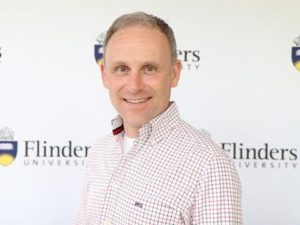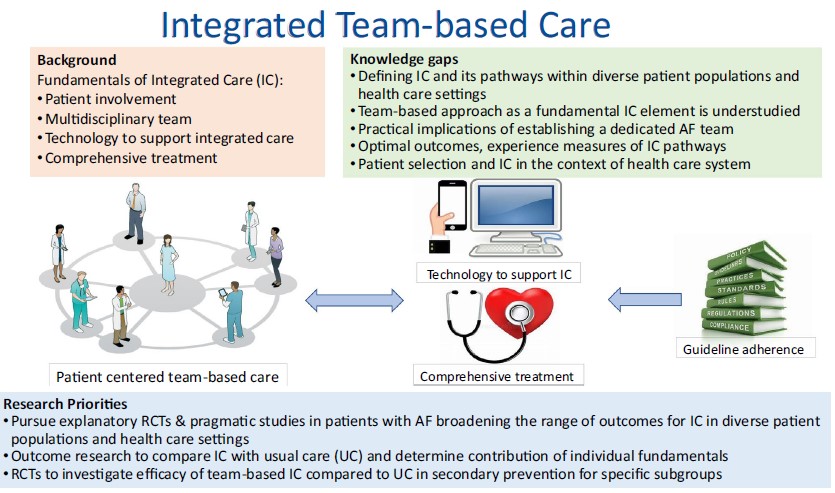
Atrial fibrillation (AF) is the most prevalent cardiac arrhythmia with an estimated 43.9 million people affected globally (in 2016).
A new PhD scholarship is being offered by Flinders University’s College of Nursing and Health Sciences to support the work of Professor Jeroen Hendriks, the Leo J Mahar Cardiovascular Nursing Chair and Heart Foundation Future Leader Fellow at the Caring Futures Institute.
His position, a joint position between Flinders University and the Central Adelaide Local Health Network funded by the University and The Hospital Research Foundation, is working to develop Integrated Care services for patients with AF, the most prevalent cardiac arrhythmia.
These efforts have led to the iCARE-AF Clinic opening at the Royal Adelaide Hospital (RAH) where Professor Hendriks is running a randomised controlled trial, comparing the iCARE-AF clinic with usual care, to demonstrate the effects in terms of hospitalisation, mortality and patient reported outcome measures, among other important outcomes.
The scholarship position with Professor Hendrik’s team closes at the end of the month.
Recently, Professor Hendriks was co-author of a new research paper in Clinical Electrophysiology (DOI: 10.1016/j.jacep.2021.05.013), which examined more than 400,000 predominantly white middle-aged people to assess the risk of irregular heartbeat with the amount of alcohol consumed per week.

Drinking small quantities of wine could reduce the risk of irregular heartbeat (atrial fibrillation), according to the study.
However, researchers warn this finding needs further research because similar studies have found the opposite result – that even small amounts of wine consumption may increase the risk of irregular heartbeat.
It found that those who consumed very small quantities of wine had a lower risk, while any amount of beer or cider consumption resulted in a higher risk of irregular heartbeat.
Led by University of Adelaide and RAH expert Dr Christopher Wong, and using data from the UK Biobank, coauthor Professor Hendriks warns previous research shows that consumption of large amounts of alcohol increases the risk of atrial fibrillation (AF) – most prevalent cardiac arrhythmia, but this has not been widely studied in relation to low alcohol consumption.
The observational study also showed that lower amounts of alcohol (less than six Australian standard drinks per week) was associated with the lowest risk of developing AF. This was particular in those consuming wine, compared to beer and cider.
“However, it is difficult to define the true threshold, and we need further research to look into that,” Professor Hendriks says.
“What does this mean for individuals diagnosed with AF? In case individuals know/have experienced that alcohol is a personal trigger for AF, the advise would be to abstain from alcohol.”
Professor Hendriks, who leads the Integrated Care focus theme at the Caring Futures Institute, also compiled a section about team-based Integrated Care in a special report in the Journal of the American Heart Association about the importance of secondary prevention in AF and related research opportunities.
 “This publication is produced by global leaders in the field of cardiac arrhythmia management and in collaboration with the National Heart Lung and Blood Institute in the US, and that I took the lead on the development of the Integrated Care section and defining important research priorities in the field of integrated care,” Professor Hendriks says.
“This publication is produced by global leaders in the field of cardiac arrhythmia management and in collaboration with the National Heart Lung and Blood Institute in the US, and that I took the lead on the development of the Integrated Care section and defining important research priorities in the field of integrated care,” Professor Hendriks says.
The report, Research Priorities in the Secondary Prevention of Atrial Fibrillation: A National Heart, Lung, and Blood Institute Virtual Workshop Report (2021) by EJ Benjamin, SM Al-Khatib, P Desvigne-Nickens, A Alonso, L Djoussé, DE Forman, AM Gillis, JML Hendriks, MT Hills, P Kirchhof, MS Link, GM Marcus, R Mehra, KT Murray, R Parkash, IL Piña, S Redline, M Rienstra, P Sanders, VK Somers, DR Van Wagoner, PJ Wang, LS Cooper, AS Go has been published in J Am Heart Assoc DOI: 10.1161/JAHA.121.021566 1.

